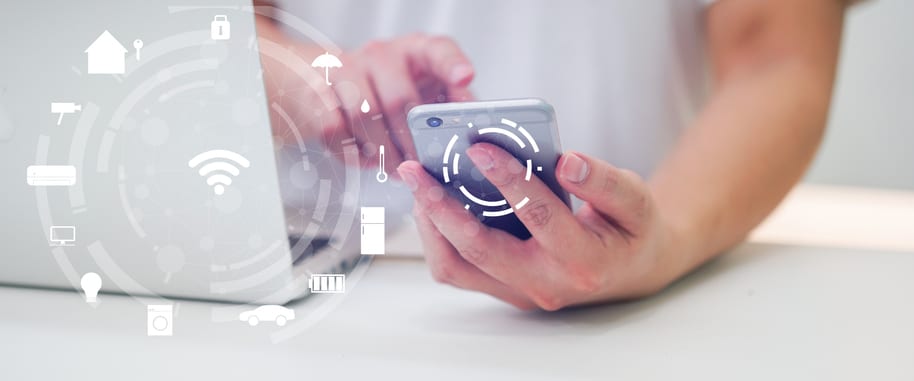Is your IT support in Salt Lake City, Utah helping you keep your mobile devices secure, in addition to the rest of your IT? Smartphones are a big part of businesses these days – if yours isn’t included in your cybersecurity, then you’re at risk.
It’s no surprise that mobile devices are continuing to become a central and necessary part of the business world. What might be surprising is how unprepared some businesses are for that reality.
No matter what kind of cybersecurity you have in place at the office, it won’t extend to the mobile devices that have access to your data.
This is a critical limitation of the cybersecurity software your IT support in Salt Lake City, Utah delivers. It’s obvious when you think about it – if your security solutions are only installed on your work devices, but you let employees use personal devices and home workstations to access business data, then obviously you won’t be totally secure.
Need a real-world example?

Your passcode or method for login – whether it’s a thumbprint, 4-digit code, pattern, facelock, etc. – is the first line of defense against those who would want to access the data on your phone. It’s generally considered to be a capable defense, but have you thought about the situations in which you give strangers access to your phone?
They’re more common than you might realize – when was the last time you took your phone into a tech support kiosk at the mall. You unlocked your phone for that technician, right?
That’s a lot of trust to place in someone you don’t know all that well. And recently, a Park City Verizon clerk took advantage of that trust. He took a customer’s unlocked phone in for repairs, and while he had it, transferred illicit photos of her to his own phone.
The customer figured out what happened when they later synced their texts and discovered that a number of texts of the photos had been sent to an unknown number while the phone was in for repair.
The unfortunate part of this is that it’s likely to keep happening. As Nexus IT Consultants’ own Earl Foote notes on the Dave & Dujanovic show:
“Even your email may have sensitive data in it that you don’t want to fall into the wrong hands,” said Earl.
You need to be able to trust someone with your phone while it gets repaired – but what can you do to protect yourself? Should you be expected to wipe your phone’s data every time you take it in?
The good news is that most phones have a simple way to protect specific files. It’s called the secure folder feature, and it allows you to choose specific files to store in it, giving them an extra layer of security, even after your phone is unlocked.
On the business end, your IT support in Salt Lake City, Utah should be managing your mobile security policies and practices to make sure any business data is kept secure. They should be able to implement solutions such as:
Learn more by listening to the full Dave & Dujanovic show episode with Earl Foote – click here to check it out now.